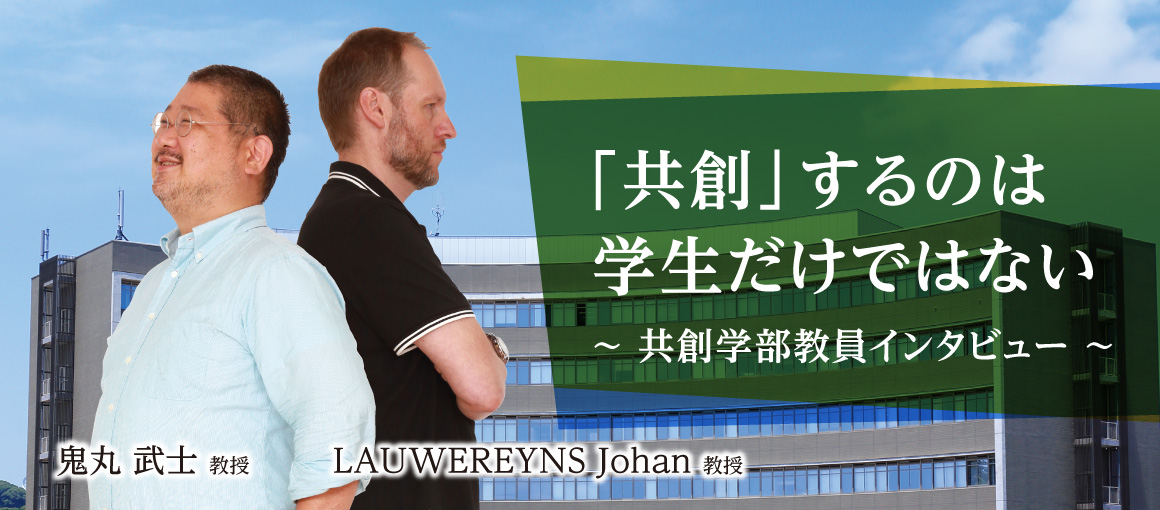TEACHER INTERVIEW 教員インタビュー

鬼丸 武士 教授
-
Q
先生にとっての「共創」とは?
-
A
物事を様々な角度から考えることです。関連する分野を学ぶこと、読書などを通じて知識、視野を広げておくこと、共に仕事をすることなどが重要だと思います。その上で、これまでとは違うアイディアやアプローチを思いついたり、ストーリーが描けるようになったりすることが「共創」ではないかと考えます。
-
Q
学生がこの学部だからできることは?
-
A
既存の学部と比べて、取り組みたい課題や方法などを選択する自由度が高いことと、試行錯誤が許されていることでしょうか。
-
Q
共創学部はどのような人におすすめですか?
-
A
他人に何かしてもらうのを待つのではなく、他人と同じことをするのが嫌で、自分から主体的に物事に取り組もうとする学生さんにお勧めです。
-
Q
共創学部を目指す学生にメッセージを!
-
A
この学部は自由度が高い一方で、自分がしっかりしていないとどうにもならなくなる危険性をはらんでいる学部でもあります。大学入試がゴールではなく、共創学部に合格してからがスタートだという意識で、学部生活を自分の人生の重要なステップとして過ごしていく、頭を使うことに疲れ果てて寝るという毎日を繰り返すことをいとわない人にぜひ、来てほしいです。
Lauwereyns Johan 教授
-
Q
What do you like about ISI?
-
A
I like the interactive nature of our school. This allows me to think much more concretely and practically about how to generate good solutions for society through studying decision science.
-
Q
What is ‘Interdisciplinary’ for you?
-
A
I see “interdisciplinary” as a form of innovation across disciplines – making new tools, new systems, and new values by combining different perspectives from the sciences and humanities. For instance, in my own research, by focusing on the mechanisms of brain and mind, we can try to improve decision making in many different aspects of society.
-
Q
For whom would you recommend ISI?
-
A
Our school is ideal for students who have wide-ranging interests, an open mind, and a willingness to try new things. It is also the best place for students who have a unique vision that goes beyond the usual boundaries of academic disciplines.
-
Q
What can the students do after they graduate?
-
A
Roughly speaking, I see three routes for our students after graduating.
Become a researcher in an innovative, interdisciplinary research field.
Become an innovative policymaker in business or government, either local or global.
Start your own venture or independent enterprise as a social innovator.
